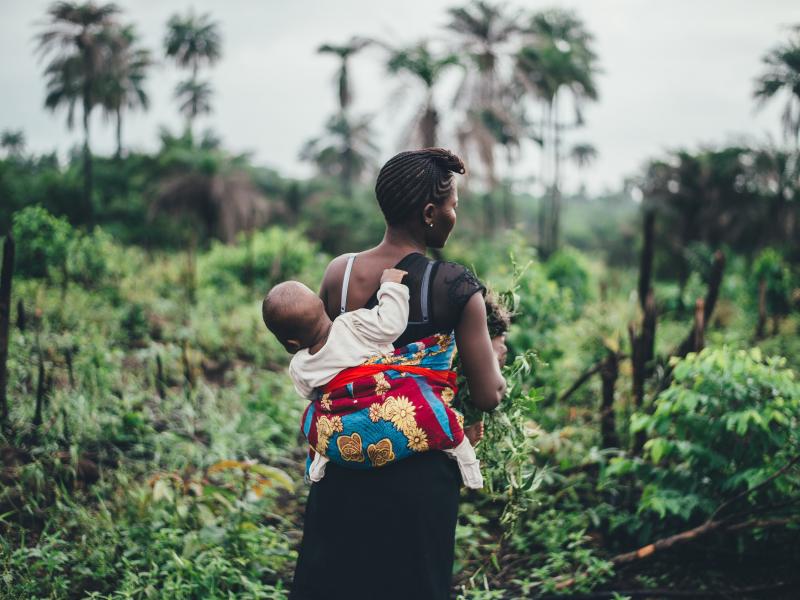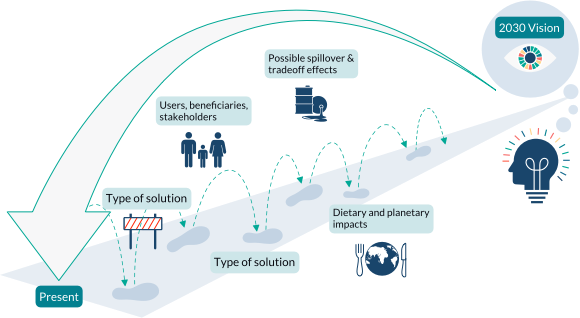Social and Behavioral Change Communication

Description of the innovative solution
Next to food availability, accessibility and affordability, consumer food choices are largely influenced by social factors such as knowledge, culture, traditions, norms and attitudes. Food choices are often an outcome of individual experiences and context-specific. Hence, the adoption of new practices for healthier and sustainable food choices requires a change of behavior. Social and Behavioural Change Communication (SBCC) motivates behavioral change by knowledge transfer and nudging consumers to adopt healthier and more sustainable diets. Since the benefits of choosing healthy and nutritious...
Next to food availability, accessibility and affordability, consumer food choices are largely influenced by social factors such as knowledge, culture, traditions, norms and attitudes. Food choices are often an outcome of individual experiences and context-specific. Hence, the adoption of new practices for healthier and sustainable food choices requires a change of behavior. Social and Behavioural Change Communication (SBCC) motivates behavioral change by knowledge transfer and nudging consumers to adopt healthier and more sustainable diets. Since the benefits of choosing healthy and nutritious food options are often outweighed by more convenient, short-term options, the SBCC is designed to have an emotive influence to give consumers an emotional benefit of healthy and sustainable food options. SBCC combines interpersonal (counselling, community conversations) and media approaches adapted to different contexts in order to appeal to the consumer’s intrinsic cultural values. This approach establishes improved nutrition practices and behavior in consumers, which could improve diets, food safety and food waste management. The innovation could also be developed in close collaboration with local communities where it is implemented.
Examples and additional resources
Real-world examples
See this solution in action in different contexts and settings around the world
SBCC for infant feeding practices
Additional resources
Learn more about this solution through studies, articles, business cases, and other information
Contacts
Connect to others working on and with this solution around the world
Pathways to uptake
Engage with our “backcasting tool” to imagine and design “pathways to uptake” for this solution in your setting.
This process involves defining a future vision of this solution being used in your context, and then working “backwards” to identify necessary steps to achieve this vision by 2030. Going through this exercise as an individual or with a team can help to clarify the WHAT/WHEN/HOW of moving a solution (or package of solutions) towards having major impact. We hope these pathways will inspire outside-of-the-box thinking, creative approaches, and actionable concrete steps to move ideas into action.
Pathway builder
Explore pathways for this solution
Be the first one and add a pathway for this solution!